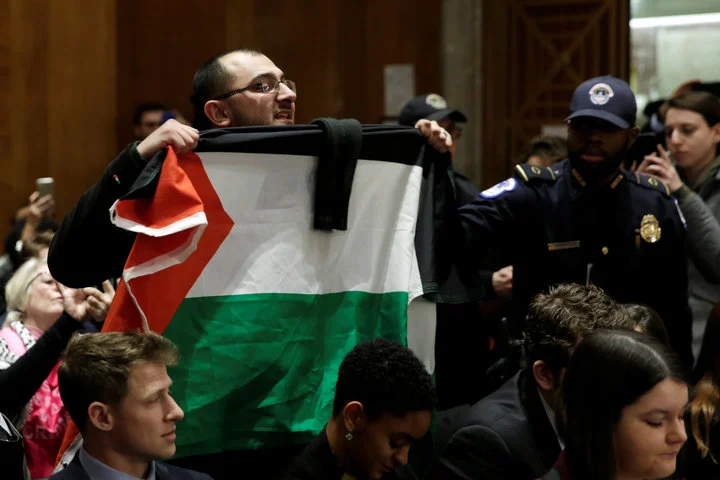Students sue Fordham University for ‘viewpoint discrimination’
Students at Fordham University filed a lawsuit against their school, on April 26, for its refusal to grant club status to Students for Justice in Palestine (SJP) in violation of its own policies.
The two count complaint alleges, amongst other things, that SJP sought, but was denied, the university’s recognition in order to raise awareness “about Palestinian identity, history, and culture and to raise critical awareness and inquiry around a range of internationally recognized human rights violations committed by the Israeli government against Palestinians.”
Upon applying for club status in 2015, SJP was met with resistance and delay tactics from the administration, who stated concerns that SJP would stir up controversy on campus. Nonetheless, a year later, Fordham’s United Student Government (USG) voted to recognize SJP. Subsequently, in an unprecedented move, the administration intervened and overruled USG’s decision.
The letter reversing USG’s decision came from Dean of Students, Keith Eldredge, whose stated reason was that approving SJP would create “polarization” on campus and that the call for Boycott Divestment and Sanctions (BDS) “presents a barrier to open dialogue.” Fordham, however, does not have any policy against advocacy that could lead to polarization. As such, the complaint alleges, “it is fair to say that it was SJP’s advocacy of Palestinian rights, and its criticism of Israel’s violation of those rights, that was Fordham’s particular concern.”
After the administration’s reversal, various civil rights organizations condemned the decision including Catholic Clergy and over 100 Fordham Professors. In response to student inquiries to the denial, Eldredge told students that there would be no appeal of his decision. He even took it a step further and unilaterally charged one of the petitioners, Sapphira Lurie, with violating the school’s “demonstration policy.” He presided as the sole hearing official and denied Lurie the right to counsel.
Advocates assert that Fordham’s treatment of SJP is part of a larger pattern of repression against Palestinian human rights which, in the past, has included false accusations of terrorism and anti-Semitism, unfounded disciplinary actions and harassment.
“Fordham’s banning of SJP is yet another example of the Palestine exception to free speech,” Radhika Sainath, a Staff Attorney at Palestine Legal, said.
However, Sainath added that this is the first time she has encountered a situation where a university outright banned SJP from forming.
Furthermore, Sainath believes that Fordham engaged in “blatant censorship when it banned SJP.” “Universities,” she continued “even private ones, may not arbitrarily discriminate against students and organizations because they don’t like their opinions.”
Sainath also stated that the lawsuit, in addition to addressing this injustice, sends a message to “activists across the country advocating for Palestinian freedom: Palestine Legal has your back!”
Maria LaHood, Center for Constitutional Rights Deputy Legal Director stated:
“If Fordham’s guarantee of freedom of inquiry means anything, it’s that students who want to advocate for Palestinian rights must be able to start an SJP club and host events, invite guest speakers, distribute flyers, and post materials just like any other group. Even if the expression of views seeking justice in Palestine or demanding respect for human rights through BDS is considered polarizing or offensive to some, it is protected speech; indeed, it is the ideas that challenge us and foster debate that need to be protected most.”
Count I of the complaint alleges that Fordham violated its policy of Free Speech and Association and Count II states that Fordham violated its own procedural policies when it reversed USG’s decision. The complaint further asserts that “By denying recognition to SJP based on how much controversy its viewpoint could provoke, Fordham violates its policy of guaranteeing freedom of inquiry on campus and encouraging education on the promotion of justice and the protection of human rights.” The plaintiffs/students in this case are asking the court to permit SJP to form a club on campus, to be granted the same rights and privileges enjoyed by all other clubs and for an order stating that Fordham violated its own policies and procedures with this discriminatory denial of SJP’s rights under university policy. Read the complaint in its entirety here.
Palestine in America has reached out to Eldredge and another university spokesperson for comment but has not received a response.




